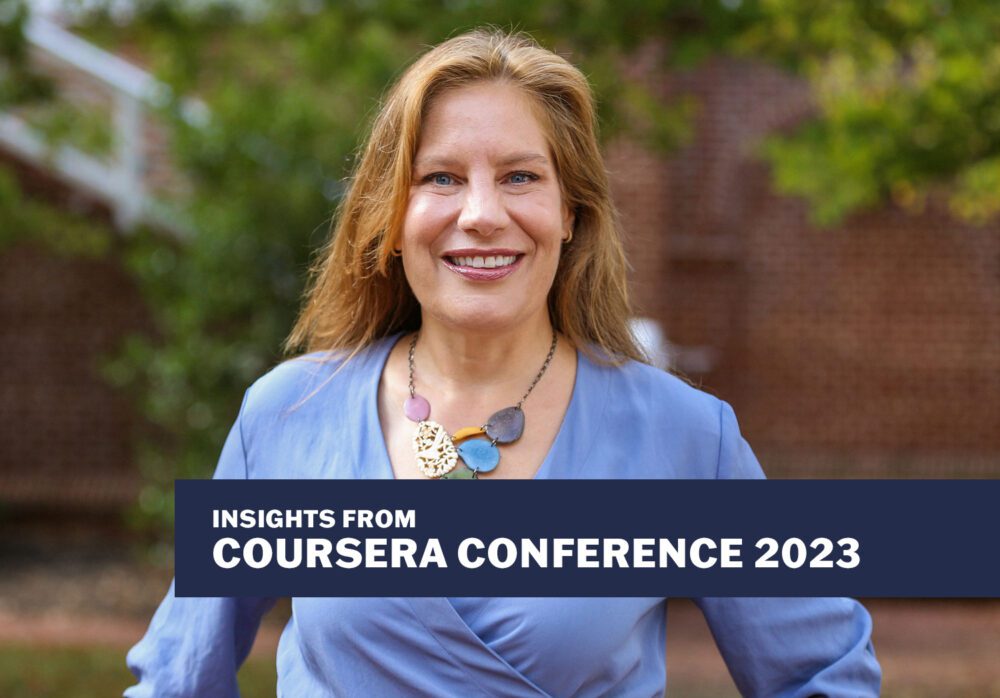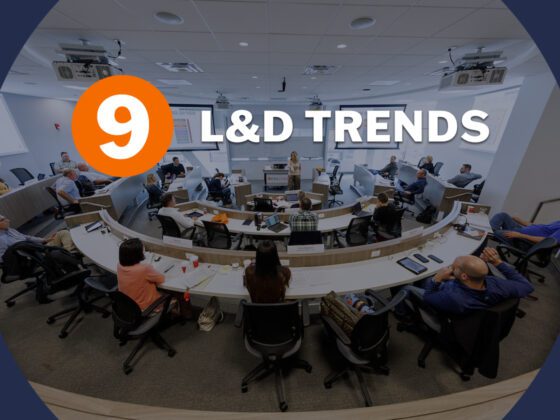Today’s global job market is evolving at a rapid pace. It’s more critical now than ever that universities are equipping their students with the knowledge and skillsets to be successful in their careers. Anne Trumbore, Chief Digital Learning Officer at The Sands Institute for Lifelong Learning at the Darden School of Business, recently participated on the Global Career Pathways: Strengthening University-Employer Collaboration panel at the Coursera Conference 2023. Along with fellow panelists Samantha Nikolai, Director of Enterprise at the University of North Texas, and Tim Robbins, Senior Software Engineer at Walmart, Trumbore discussed the crucial collaboration that’s needed between universities and employers to prepare students for success on a global scale. Key insights included:
Now is the time for collaboration
Trumbore shared that the role of higher education is expanding, and some of that expansion needs to be borne by corporations and organizations for multiple reasons — increasing costs of higher education, accessibility issues, questions of relevance and trust in higher education. Despite these concerns, she said that in the end higher education is still a collection of scholars who create knowledge that people and companies need.
Technology evolution benefits everyone
The rapid evolution of technology has created a potential to create a win-win situation for both universities and employers. “Now that we have the benefit of these amazing new technologies, how can we use them as an eraser to blur some of the lines between higher education and corporations? I think both parties win and are aligned here because employers provide proximity to practice for professors and professors provide the knowledge of how to teach and domain expertise to employers and learners at work.”
Foster a learning culture
Corporations that want to remain competitive must adopt a culture of learning. Trumbore discussed how adopting this mindset needs to start at the top with the leaders of the organization. “At [Darden Executive Education & Lifelong Learning] we’re focusing on leaders at the top because if they’re prioritizing learning and development, they’ll encourage and support their teams prioritizing it as well. While many learners are technically proficient, they may be lacking in leadership skills, and so we focus on unlocking those skills, including social capital, within a company using technology and partnerships.”
Darden is not teaching technology. We are leading students or providing opportunities and experiences for people to use the technologies...so that they can start thinking about how it applies specifically to their industry.
She said, “Unlike other organizations that teach software and other skills, Darden is not teaching technology. We are leading students or providing opportunities and experiences for people to use the technologies in assessments or in programs so that they can start thinking about how it applies specifically to their industry. People need to be taught how to manage technology and how to think about it.”
The panel closed with conversations around how universities and employers need to maintain an open dialogue in the future so that universities can communicate what the title of a degree or certificate means on a resume, and employers can communicate the skills that are important for someone to advance in their career.
Watch the full panel discussion here.




